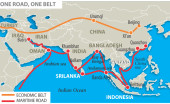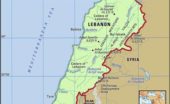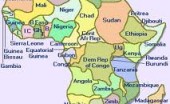Johannah Bernstein post: "eternally proud of my father’s extraordinary aeronautical engineering. legacy. here is a photo of the Canadair Water…
Union for the Mediterranean
Written by Diana Thebaud Nicholson // July 28, 2008 // Africa, Beryl Wajsman, Europe & EU, Foreign Policy, Geopolitics, Middle East & Arab World, Rights & Social justice // Comments Off on Union for the Mediterranean
Two and a Half Cheers for the Mediterranean Union
by Chris Patten
(Project Syndicate) Maybe it is time to be a bit more generous to French President Nicolas Sarkozy and look at the outcome of what he does rather than the way that he does it.
The original launch of the Mediterranean Union almost sank the whole enterprise. Appearing to speak without giving the issue much thought, Sarkozy initially proposed a club of European and mostly Arab states along the Mediterranean’s shore. It would have been in essence a French-run enterprise that the rest of Europe would have paid for. This did not go down well, particularly with the Germans.
There was also a strong suspicion that the French were trying to find a way to buy off Turkey with a relationship falling well short of European Union membership.
So the auguries for an attempt to revitalize Europe’s relationship with its Mediterranean partners were not good. But by the time of the grand Paris Summit in July to send the new club on its way, the initial suspicions had largely been overcome. Sarkozy bowed to his European critics and enjoyed a diplomatic triumph. …
Finally, Europe has to decide how serious it is about all the admirable stuff in the Barcelona Process on pluralism, civil society, the rule of law, and democracy.
Is Europe serious that a shared concept of human rights should be one of the foundations of our Mediterranean partnership? If so, what are we in Europe proposing to do about it? If this is just blah-blah, better not say it. We discredit ourselves and important principles when we say things that we do not mean.
July 28
Nicolas Sarkozy, the frenetic leader
The French president’s Mediterranean Union initiative is a perfect example of his hectic and performative style of leadership, says Patrice de Beer.
(open Democracy) … the Union pour la Méditerranée is a case-study in Nicolas Sarkozy’s foreign policy. It had been conceived by his close political adviser Henri Guaïno with several artful purposes in mind:
* bypassing the European Union (which Guaïno loathes) in the effort to acquire the lead role in defining the EU’s Mediterranean policy and funds
* creating a grand project to affirm France’s independence of action
* developing the countries on France and the EU’s southern fringe with the purpose of drying up direct economic emigration, creating a bulwark against emigration from sub-Saharan Africa, and diverting Turkey (which, for Guaïno is not an European nation) away from EU membership
* showing the Bush administration that it could be more fruitful to engage enemies (such as Syria) in dialogue than demonise them as members of an “axis of evil”.
Between the ambition and the reality, falls the bling-bling. For the reality revealed by the pomposity of 13 July 2008 is little more than a new “Club Med” (after the group once represented by Portugal, Spain, Italy and Greece) whose bureaucracy, resources and ethos somehow fail to cohere: there are two co-presidents (Nicolas Sarkozy and Hosni Mubarak), but as yet no structure, no serious budget for its six ambitious programmes, and no real human-rights dimension. It also sits in awkward relationship with the 1995 “process” of which it is the inheritor (see Fred Halliday, “The ‘Barcelona process’: ten years on“, 11 November 2005).
The grin without the cat
Sarkozy wants to remain co-chair of the Barcelona Process: Union for the Mediterranean after December 2008 – in the same way that he would have liked to stay co-chair of the European Union throughout 2009, were the Czech Republic and Sweden not to be in line for the rotating presidency. His UPM partners are dubious about this ambition, so the decision has been deferred. Tunisia and Morocco are competing to house the secretariat, so this decision at least should be made by the end of 2008. With no money to spare, France hopes for financial support from the Gulf states to bankroll the UPM.
July 14
Nicolas Sarkozy’s New ‘Club Med’
By Stefan Simons in Paris
(Spiegel online) Mediterranean summit, national holiday, rapprochement between Syria and Lebanon and Middle East peace talks. President Sarkozy, host of the highly symbolic gathering of 43 leaders, basked in the role of global diplomat over the weekend.
The French president, who also holds the rotating presidency of the European Union and is polishing his credentials as a bridge-builder between the North and the South, tried his hand at mediation between Syrian President Bashar al-Assad and Lebanese President Michel Suleiman, who agreed to resume diplomatic ties in Paris.
Sarkozy also cast himself in the role as Middle East peacemaker. First President Mahmoud Abbas, then Israeli Prime Minister Ehud Olmert heaped praise on the Frenchman in front of the TV cameras. Sarkozy basked in role as skilful director of world diplomacy.
Will Sarkozy’s Mediterranean union be more than a big photo-op?
(IHT) Some signs are promising. Far from the cameras, there was real diplomacy, promising real results.
[BUT]
Squabbling over whether or not to call Israel a “nation-state” almost deadlocked the union’s founding declaration Sunday. In the end, diplomats skirted the issue by referring to two conferences last November, one in Annapolis, Maryland, and one in Lisbon, one of which did and one did not make a reference to the term nation-state.
Since no one could agree, sensitive decisions on where the union secretariat will be based and which country will provide the first secretary were postponed until the November meeting.
And even some of the successes, said Dominique Moïsi of the French Institute of International Relations, have more to do with short-term interests than long-term vision.
French leader inaugurates Mediterranean Union
French President Nicolas Sarkozy realized his vision of a Union of the Mediterranean when representatives of more than 40 nations gathered to inaugurate the organization. Sarkozy had initially envisioned a fraternity consisting solely of those nations bordering the Mediterranean, though it was eventually expanded to include the entire EU as well. During the session, Lebanon and Syria agreed to establish embassies in one another’s capitals, and the event played host to a meeting between Israel’s Ehud Olmert and Palestine’s Mahmoud Abbas. MU co-presidents Sarkozy and Hosni Mubarak, president of Egypt, have not yet established where the headquarters will be built. The New York Times (7/14) , Financial Times (7/13)
Med Union priorities explained
The declaration speaks of the leaders’ determination to “transform the Mediterranean into an area of peace, democracy, co-operation and prosperity”.
The new union is aimed at building on the “Barcelona Process” for Euro-Mediterranean co-operation, launched in 1995.
(Al Jazeera) PROJECTS UNDER DISCUSSION: Cleaning up pollution in the Mediterranean, building highways and sea routes, disaster response, developing renewable energies – mainly solar power – boosting education and research, and an initiative to help foster business.
Sarkozy’s plan: Showy or astute?
July 13
FACTBOX – Mediterranean Union launch summit in Paris
(Reuters) – Leaders of 43 countries from the European Union and the Mediterranean region met in Paris on Sunday for a first summit of the Union for the Mediterranean, an initiative launched by French President Nicolas Sarkozy.
The project is aimed at breathing new life into the existing Euro-Mediterranean partnership, known as the Barcelona process, and will create a more equal dialogue between the wealthy EU and the poorer states that line the Mediterranean.
Key facts about the summit and the project.
MEMBERS
Membership of the project is open to all states that border the Mediterranean, all members of the European Union, and some others. They represent a total of nearly one billion people.
The organisers said the following countries attended: Albania, Algeria, Austria, Belgium, Bosnia-Herzegovina, Britain, Bulgaria, Cyprus, the Czech Republic, Croatia, Denmark, Egypt, Estonia, Finland, Germany, Greece, Hungary, Ireland, Israel, Italy, Jordan, Latvia, Lebanon, Lithuania, Luxembourg, Malta, Mauritania, Monaco, Montenegro, Morocco, the Netherlands, the Palestinian Authority, Poland, Portugal, Romania, Slovakia, Slovenia, Spain, Sweden, Syria, Tunisia and Turkey.
The only national leaders who were invited but did not attend were Libya’s Muammar Gaddafi, a vocal critic of the project and whose country did not send an envoy at all, and the kings of Jordan and Morocco, who both said they could not come for personal reasons.
U.N. Secretary-General Ban Ki-moon, European Commission President Jose Manuel Barroso and Arab League Secretary-General Amr Moussa also attended. More
Migration key issue at Paris talks
(Al Jazeera) Heads of state and government from countries ringing the Mediterranean are set to meet in Paris over the weekend to launch the Mediterranean Union project.
The new cross-continental body aims to strengthen ties between Europe and its southern neighbours.
Likely to top the agenda of their first summit starting on Sunday is a new European Union proposal aimed at tackling illegal immigration.
July 6
Sarkozy’s Union of the Mediterranean falters
(IHT) PARIS: Perhaps the grandest new idea of President Nicolas Sarkozy of France, looking to give his presidency of the European Union a lasting stamp, is the Union of the Mediterranean. An effort to bind the 17 nations bordering the Mediterranean with the European Union around specific regional projects, the Union will be inaugurated next week at a grand Paris summit meeting, to be followed by France’s Bastille Day celebrations.
But as with so many of Sarkozy’s grand ideas, the execution has been haphazard. His impulsiveness created resistance among vital allies, like the Germans and the Spanish, and confusion within his own government.
March 14
EU summit approves principle of Union for Mediterranean
BRUSSELS, March 14 (Xinhua) — A European Union summit approved here on Friday the principle of a Union for the Mediterranean, proposed by France, to strengthen and further the Barcelona Process.



